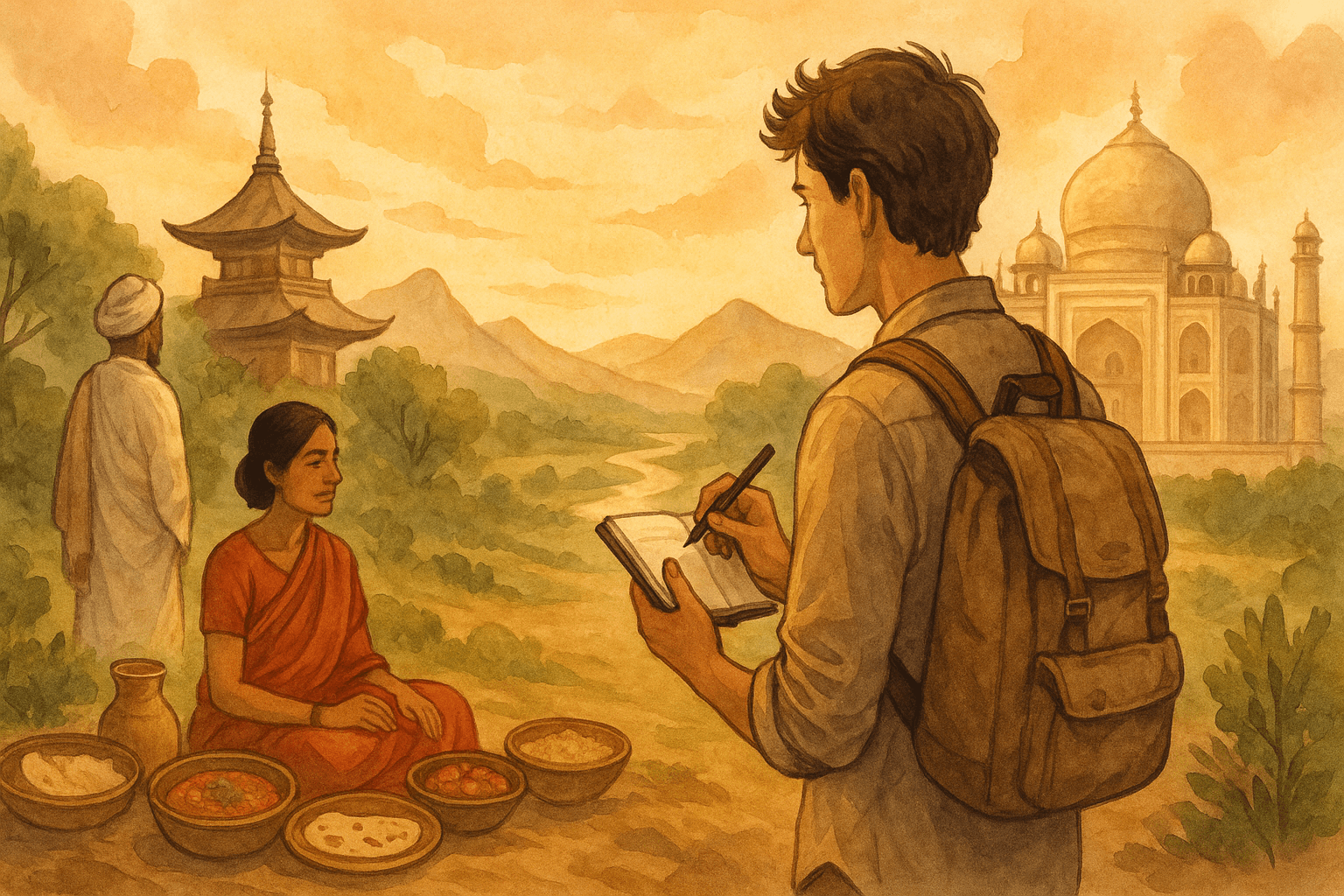Navigating the Complex Waters of Moral Philosophy in Travel

Have you ever traveled to a new place and felt completely out of your depth? The sights, sounds, and cultural practices swirl around you, and you find yourself grappling with the question: How do I understand this world that’s both familiar and foreign? In ' How to Observe: Morals and Manners ,' the author dives deep into the theme of moral philosophy, making a compelling case for the importance of empathy, critical observation, and cultural understanding when traversing new landscapes.
From the very beginning, the book sets a tone that urges travelers to approach their journeys with caution and humility. The introduction paints a vivid picture of moral philosophy as an intricate web, entwined with the customs and practices of different societies. It critiques the all-too-common habit of making sweeping generalizations based on limited experiences, which can lead to serious misconceptions and reinforce harmful stereotypes. Instead, the author encourages a more methodical approach—one that mirrors the precision of fishing—where every observation is a deliberate catch, contributing to a broader understanding of humanity.
As we venture into the first chapter, we find ourselves confronted with the duality of the observer and the observed. The mindset of the traveler becomes paramount; without the right mental tools, even the most nuanced cultural insights can be distorted or overlooked. The author emphasizes that clarity of purpose and emotional connection are vital to truly grasp the morals and manners of a society. Just think about it: without empathy, how can we engage meaningfully with practices that might initially seem alien to us?
In subsequent sections, the book delves into the significance of cultural relativism and the universal pursuit of happiness. The author deftly points out that what might seem like an unusual custom in one culture may actually be a variation on the same human need for joy and connection. Each practice, whether it’s dietary habits or marriage customs, deserves to be understood in context rather than judged through the lens of our own biases. The call here is clear: observe with an open heart and mind, seeking to appreciate the broader principles of human association.
The narrative continues to unfold with poignant discussions on societal structures and their moral implications. The author examines how various historical and cultural contexts shape moral beliefs, arguing that while some aspects of morality may be universal—like the wrongness of causing harm—the interpretation and enactment of these beliefs can differ dramatically. This complexity is what makes the study of moral philosophy and cultural observation so rich and rewarding.
As we move through the chapters, the theme of liberty emerges as a vital element in understanding moral philosophy. The author critiques the constraints of societal norms and the limitations placed on individual freedoms, particularly within hierarchical structures. The book challenges us to reflect on our own contexts and consider how our understanding of freedom shapes our moral frameworks.
In wrapping up this journey through moral philosophy, we return to the opening hook: How do we bridge the gap between our cultural backgrounds and those we encounter? The answer lies in our willingness to engage, to ask questions, and to cultivate a genuine curiosity about the lives and experiences of others. By recognizing that every culture possesses its own moral landscape shaped by unique circumstances, we can foster a deeper appreciation for the diverse expressions of humanity.
In conclusion, ' How to Observe: Morals and Manners ' serves as a reminder of our moral responsibility as travelers. It compels us to step outside our comfort zones and to embrace a philosophy of empathy and understanding. So the next time you find yourself navigating the complexities of a new culture, remember to observe not just with your eyes, but with your heart—and let that guide your journey toward a more profound understanding of the world around you.
Books: How to Observe: Morals and Manners
Authors: Harriet Martineau
Publishers: Public Domain